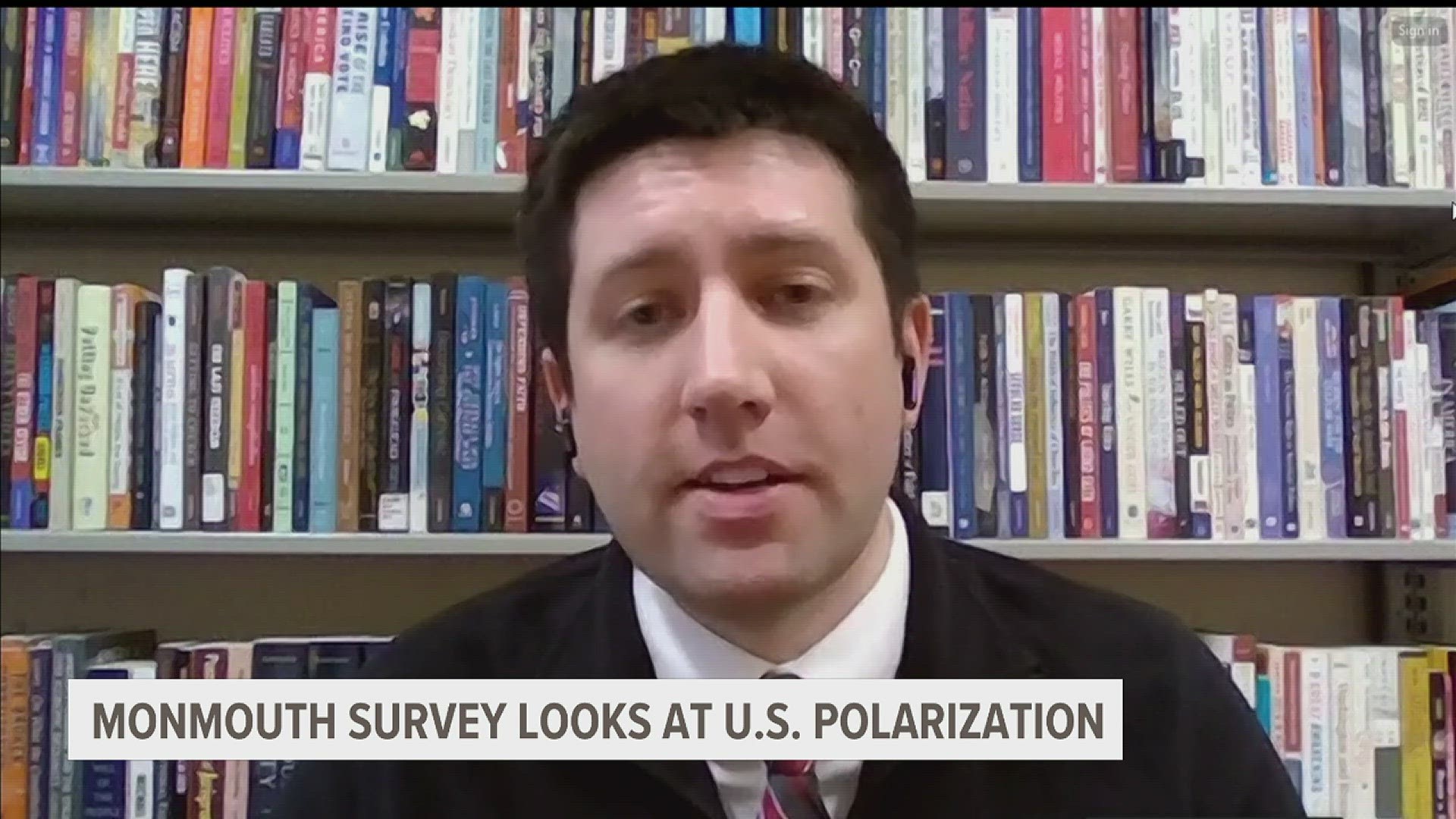MONMOUTH, Ill. — During the fall semester, political science students at Monmouth College got a hands-on opportunity to explore polarization, political ideologies and punishment through a national survey they wrote and distributed.
The survey examined how people would respond to a professor making "politically uncivil" remarks in class and whether the respondent would want to punish the educator for it.
The students found the answers varied greatly depending on the respondents' own political leaning.
It was all through Monmouth College Professor Andre Audette's "Political Psychology" course.
"Depending on the treatment group respondents received, the professor made disparaging remarks about Republicans, Democrats or students in general," Audette said. "This allows us to see if people who identify with the Republican or Democratic parties are more likely to want to punish the professor for remarks made about their political party."
According to the survey results, students found that Republicans were more likely than Democrats to want to discipline a professor. Those disciplinary actions ranged from losing a job, issuing a public apology or attending sensitivity training.
Interestingly, Republican respondents were also more likely to say the same professor had the right and academic freedom to make "politically uncivil" comments.
"Although this may sound contradictory at first, it corresponds with some of the national political rhetoric we have seen lately," Audette said. "Republican politicians are currently more likely to try to emphasize curricular issues, such as critical race theory, gender studies or civics education, but also appreciate brash rhetoric as demonstrated by the professor in our experiment and presidential candidates like Donald Trump."
The survey included 1,192 respondents from 46 different U.S. states and was conducted through the Amazon Mechanical Turk platform. It was collaboratively designed in class by Audette's students who proposed ideas and debated the merits of each one before the eventual topic was selected.
It was that collaborative environment that attracted psychology and sociology/anthropology senior Lilliam Hucke of Aledo, Illinois.
"This experiment was a unique experience to collaborate with other researchers," Hucke said in a press release. "Many of my senior projects are solo, but it was beneficial and helpful to do research with a professor and classmates. I think this experience will be beneficial to my future research because most published research has multiple authors."
Ultimately, it was senior Anita Gandara of Chicago, Illinois, whose proposed idea was chosen for the national survey.
"This research is very important to me because it brings together my interests in American politics and polarization," Gandara said. "It allows me to engage in academic research, which is important because I want to continue my education in the political communication field. Getting hands-on research experience at the undergraduate level is exciting because I have gotten to work closely with my professor and peers throughout the process."
Professor Audette joined The Current on News 8 to discuss the findings of this study and its relation to our broader voting population. You can watch his full interview in the above video.
Tune into The Current from 4 to 5 p.m. on weekdays to catch even more live interviews impacting you, your family and your hometown as well as all of the biggest headlines of the day.
Watch more news, weather and sports on News 8's YouTube channel

